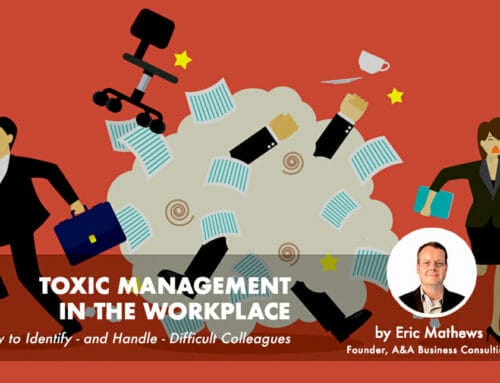HOW TO PROMOTE WELL AND AVOID MEDIOCRITY
Have you ever promoted an employee, only to have their performance drop off once they settle into a management role? If so, you may have accidentally fallen prey to the “Peter principle.” This principle essentially states that most employees will continue to be promoted to a new role based on performance in their current one, until they reach positions in the company in which they can no longer thrive. They’ll then remain in those positions, uncomfortable and delivering mediocre-at-best results, because they can no longer demonstrate the competence it would take to receive another promotion. Put more succinctly: in most companies, employees are eventually promoted out of their skill set or level of expertise.
When Promoting is Wrong
Why do all of these unhelpful promotions come about? Most businesses want to reward employees who have performed well in their role or have remained loyal to the company for a long time. Certainly, recognizing success and appreciating great work is crucial to team morale and company culture. However, offering someone a new job based on their performance in their current role is misguided, and this is typically how upward movement gets off track.
Almost everyone has climbing aspirations in the workforce, but moving from a job managing processes to a job managing people is not what everyone is built for, and it shouldn’t be the only version of success we’re willing to celebrate. If the only upward compensation is upward job mobility, you’ll be moving your best people out of the roles they excel in, and moving them into areas they aren’t equipped to thrive. In fact, it may be helpful to reconsider pay for exceptional or long-time employees without changing their titles or duties. A stellar employee might make for a mediocre supervisor, or a terribly unsuited middle manager. This is not to say that promotion is never the right option – promotion just needs to adhere to a different set of standards.
When Promoting is Right
Management is not a skill, it’s a mentality. In fact, skill sets for management can be honed and developed over time, even industry-specific skills. It’s much easier to equip someone who manages people well with the right tools than it is to equip someone with industry knowledge with what it takes to manage people. In one sense, “people skills” cannot be taught by an outside party – they must be developed by the individual. Every company needs upper-management, but every company that thrives knows they need the right managers.
It’s important to remember that in industries like software, manufacturing, or engineering, many employees work in jobs that are almost entirely technical. Moving that employee into a supervisor position shifts that balance to a 50/50 split – half of the job is still technical, but the other 50% of those duties are about managing people as they manage technical processes. An upward movement into middle management tips the scale even more, creating a job that’s almost entirely about people, although a small portion of the day may still be dedicated to processes. Directors and CEOs are in the position of managing management, pushing their time spent in technical processes to negligible levels. Vision must become broader as you climb the ladder. With this in mind, it’s simply not important to hire a new manager who is highly proficient at coding specific lines or assembling certain parts – but you always need a manager who is great at managing people, because it allows those employees who are coding and manufacturing to do their best work in a healthy environment.
How to Promote Well
If you have an employee who’s advocating for a promotion or job change, take a look at the relationships in their current role. When a problem arises, do they take initiative to solve it, or do they need to be coaxed through the process by their current director? Are they exhibiting skills in developing the people they currently manage? Are they able to use the resources around them to fix the issue if they don’t know the ins and outs themselves? Can they handle interpersonal conflict well? If they succeed in these areas, they are likely a great candidate for promotion.
If you’re looking to promote internally, offer opportunities for your employee to demonstrate their capability at the next level. It’s important to note the difference between giving full responsibility and offering specific opportunities to showcase their management abilities. Don’t simply throw them into the role without an official promotion “to see how it goes” – that is a recipe for disaster. Instead, offer them projects that are specific and time-limited to see how they handle the added load. If they’re unable to thrive in those smaller projects, management is probably not the right road for them.
Don’t be afraid to hire across industries if your internal candidates don’t demonstrate great potential. Finding the right fit may take time and present some challenges along the way, but it’s worth it to find the right person in the driver’s seat. Why? Good managers make their employees – and the entire company – better.





